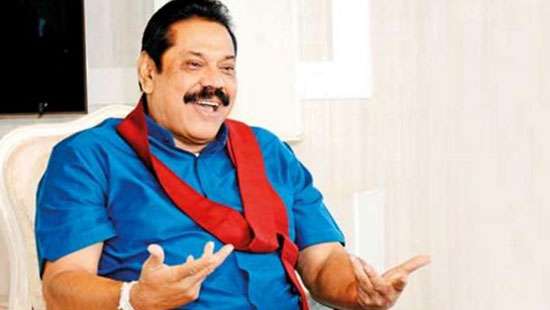Reply To:
Name - Reply Comment

Opposition Leader Mahinda Rajapaksa said yesterday that Sri Lanka should not co-sponsor the UNHRC resolution coming up this time.
Issuing a statement, he said the government has announced that they will co-sponsor yet another resolution brought against Sri Lanka in the UN Human Rights Council (UNHRC).
Resolution 30/1, the first such co-sponsored resolution in October 2015 committed the government to among other things, setting up a hybrid war crimes court with the participation of foreign judges, prosecutors and investigators and to removing by administrative means, individuals in the armed forces suspected of human rights violations even if there is insufficient evidence to charge them in courts. By co-sponsoring Resolution 30/1, the Sri Lankan government officially accepted Report No: 30/61 dated 28 September 2015 prepared by the Office of the High Commissioner on Human Rights (OHCHR), which directly accused the Sri Lankan armed forces of many crimes including torture, enforced disappearances, deliberate targeting of civilians and the denial of humanitarian assistance to civilians.
He said, “In partial fulfilment of numerous pledges given in Resolution 30/1, the government forced through Parliament the Office of Missing Persons Act after a farcical debate of less than 40 minutes in August 2016. The Office of Missing Persons (OMP) can issue the summons, examine witnesses and hold hearings and is actually a tribunal in all but name. Its officers can search any police station, prison or military installation at any time without a warrant and seize any document or object they require. Government bodies at all levels including the armed forces and intelligence services are required to render their fullest assistance to the OMP even in contravention of the Official Secrets Act.
In March 2018, acting against the repeated requests of the Maha Sangha, the government passed the Prevention of Enforced Disappearances Act No: 5 of 2018 to incorporate into local law, the provisions of the International Convention against Enforced Disappearances. This enables an alleged enforced disappearance in Sri Lanka to be investigated and prosecuted in a foreign country as if it was an offence committed in that country. The country that arrests a Sri Lankan citizen on such grounds, has the option of handing that individual over to the International Criminal Court. Furthermore, foreign governments can request the extradition of persons suspected of having committed enforced disappearances in Sri Lanka to stand trial in their countries, the Opposition Leader said.